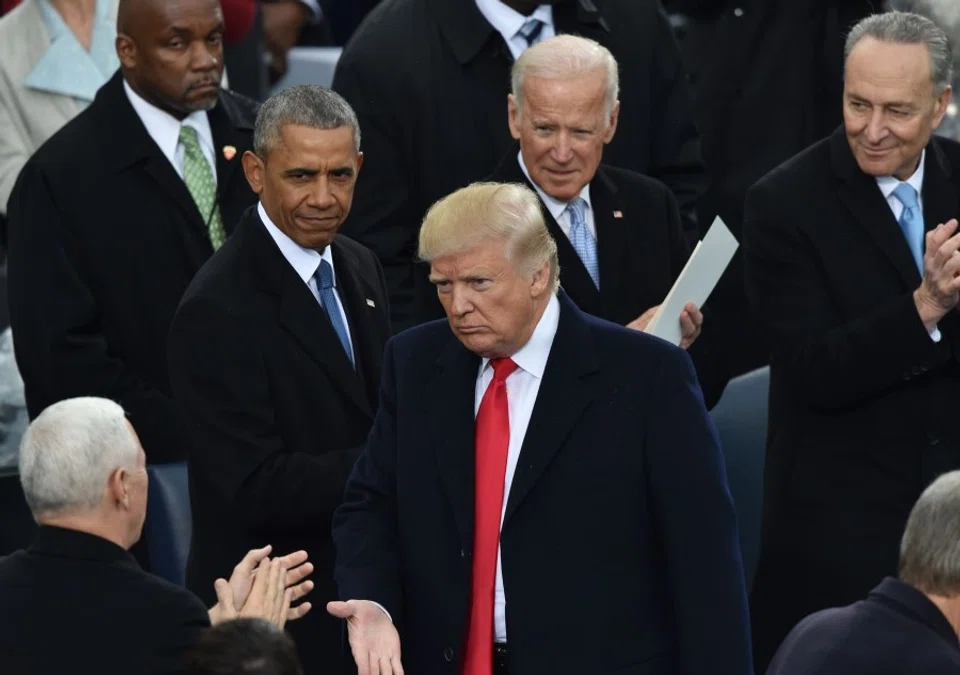Trump or Biden, America's distrust of the Chinese Communist Party will stay
A new report by the White House has cast China as an ideological threat to cherished liberties and the American way of life. This is a bipartisan approach that will endure even if President Donald Trump loses his bid for a second term.

If anyone still doubts the vastly changed nature of America's relations with China under the Trump administration, consider the report "United States Strategic Approach to the People's Republic of China" submitted by the White House to the United States Congress last month. The 16-page document is a follow-up on the National Security Strategy (NSS) report of December 2017 which had announced the major shift in US policy towards China in a competitive direction.
The CCP is seen to be promoting governance values that challenge "bedrock" American beliefs in liberty and the American way of life, which casts the ideological threat in almost existential terms.
The blunt tone is reminiscent of the exchanges between rival protagonists of the cold wars of the 20th century. The repeated distinction made between the Chinese Communist Party (CCP), the malign agent, and the Chinese people with whom the US has no quarrel, also has echoes of the old Cold War. The US administration believes that it is not starting a cold war, only responding somewhat belatedly to a cold war by stealth that China has been waging against the US for over a decade.
Evident in the report are the deeply felt concerns about the threat that China under the rule of the CCP poses to US economic and security interests, as well as to American values. The CCP is seen to be promoting governance values that challenge "bedrock" American beliefs in liberty and the American way of life, which casts the ideological threat in almost existential terms.
As part of America's increased activity on the information warfare front, the report highlights disagreeable features of China's "system of socialism with Chinese characteristics", and of grand schemes like "building a community of common destiny".

The US is publicly exposing and criticising China's perceived misbehaviour to demonstrate its resolve to both China and America's friends and to ensure that Beijing's narrative and propaganda do not go uncontested. This may additionally have the psychological value of discomfiting the rival though it can also further poison the atmosphere of relations. But the US administration seems to believe that it can live with more bilateral friction since a better atmosphere of relations in the past did not stop what it calls China's "predatory" behaviour.
As part of America's increased activity on the information warfare front, the report highlights disagreeable features of China's "system of socialism with Chinese characteristics", and of grand schemes like "building a community of common destiny". It lists US efforts to raise international attention to China's persecution of religious minorities such as Muslim Uighurs, Tibetan Buddhists, Christians and Falun Gong. This is a sensitive subject that will touch a raw nerve with Beijing. The US is also increasingly speaking up in support of regional allies and partners that are seen as being coerced and bullied by China, particularly in the South China Sea.
The document notes that In July 2019 the PRC Minister of Defence publicly acknowledged that the BRI is linked to the PRC's aspirations to expand the People's Liberation Army's presence overseas.
China's Belt and Road Initiative (BRI) is portrayed as inimical to US interests. Through the BRI, the report adds, China will seek to "reshape international norms, standards, and networks" and obtain "undue" political influence and military access. The document notes that In July 2019 the PRC Minister of Defence publicly acknowledged that the BRI is linked to the PRC's aspirations to expand the People's Liberation Army's presence overseas.
As a result, the BRI has become a potential multi-dimensional threat to US interests. This in itself is a harbinger of the coming tussles with at least some of the many countries participating in certain BRI projects. In Southeast Asia alone, they include countries which are either partners or allies of the US: Malaysia, Singapore and Thailand.

Engagement and dialogue with the PRC was given little attention in the report. Having concluded that high-level dialogues conducted by previous US administrations produced no concrete results and were littered with broken promises on the Chinese side, it is no surprise that the report says that the US will not entertain Beijing's demands to create a proper "atmosphere" or "conditions" for dialogue. It will only have dialogue and engagement that is results-oriented, not one meant just for "symbolism and pageantry".
A Biden Administration, if it does emerge, will employ somewhat different methods and style for dealing with the problem, but it will not veer too far from the same long-term strategic imperative.
It would be a mistake to regard all this as just a product of the whims of an unpredictable President. Rather, the report - which was compiled by the White House and coordinated broadly across the US executive branch - is the considered appraisal of the economic, security and foreign affairs practitioners in the present US Administration which the President has endorsed whether he read the full report or not. The current stance on China has strong bipartisan support in Congress. Public opinion polls show unfavourable views on China have been growing and are clearly in the majority. A Biden Administration, if it does emerge, will employ somewhat different methods and style for dealing with the problem, but it will not veer too far from the same long-term strategic imperative.
This article was first published as ISEAS Commentary 2020/84 "Sino-US Strategic Competition: Shades of a New Cold War?" by Daljit Singh.
Related: Will China and the US fight another wrong war, with the wrong enemy, at the wrong place and time? | Is China the 'big bad wolf' the US has made it out to be? | Battling atheist China: US highlights Xinjiang issue and religious freedom in Indo-Pacific region | Escaping the new Cold War: Fostering understanding between China and the West





![[Photos] Fact versus fiction: The portrayal of WWII anti-Japanese martyrs in Taiwan](https://cassette.sphdigital.com.sg/image/thinkchina/3494f8bd481870f7c65b881fd21a3fd733f573f23232376e39c532a2c7593cbc)